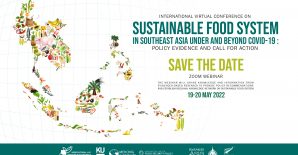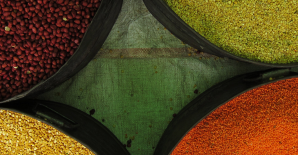News
Tajikistan to increase land allocated for cotton in 2018
Tajikistan will allocate an additional 13,500 hectares for cotton in 2018, which will be offset by a reduction in area for grain and forage crops. Cotton planting and production had been experiencing a sustained decline over the past five years as agricultural planners focused on other crops. In 2017, cotton producers beat forecasts set by the agricultural ministry, collecting 380,000 tons. Some local experts believe that an increase in international cotton prices could be encouraging the change. – Asia-Plus
Agricultural subsidies to increase in Kyrgyzstan
Kyrgyzstan’s finance ministry will budget more than 1 billion soms (approximately $14.6 million) for agricultural subsidies and development in 2018. This represents a slight increase from 2017, when the government spent 950 million soms ($13.8 million). – News Agency 24
Uzbekistan to create association of lemon producers
Uzbekistan’s Agrobank will create an association of lemon producers in the country’s Qashqadaryo region. The decision follows comments by Uzbek president Shavkat Mirziyoyev, who remarked on the profitability of lemon production during a working visit to the region. – AzerNews
Agrotechnical center to be established in Kazakhstan's Kostanay region
Kazakhstan’s Kostanay region will be the site of a new agrotechnical hub that will help train agricultural specialists and increase access to modern farming technology. The Asian Development Bank is contributing a $341,000 grant toward the establishment of the center. – Astana Times
Identification of cattle in Kyrgyzstan to be completed by February 20
Almost 90 percent of the cattle stock in Kyrgyzstan have been identified and entered in an electronic database, according to the head of the state agency responsible for veterinary and phytosanitary inspection. In related news, Kyrgyzstan fulfilled nearly 99 percent of its livestock vaccination target for 2017. – News Agency 24
Russia grants migration amnesty to nearly 122,000 Tajik nationals, according to Tajik labor minister
Tajikistan’s Minister of Labor, Migration, and Employment of the Population Sumangul Toghoizoda reported that nearly 122,000 Tajik citizens were granted amnesty in Russia in 2017. Amnesty was available during a one month period in the spring and was granted to migrants who were deported for failing to meet existing requirements and did not commit any serious crimes. Russia is reportedly the world’s second largest destination country for foreign migrants behind the U.S. – Asia-Plus
Analysis & Other Information
Meet the villagers in Tajikistan who are putting disaster risk knowledge into practice
Mercy Corps and Welthungerhilfe, with funding from the European Union, have been providing disaster risk awareness training to residents of Tajikistan’s Rasht Valley. This blog feature on the European Commission website looks at how local communities have applied this knowledge to their daily lives. The Rasht Valley is prone to mountain-related disasters including landslides and avalanches. – European Commission
Supporting pasture users union to prevent pasture degradation in Tajikistan
ACTED is working to prevent pasture degradation in the Soghd and Murghab regions of Tajikistan. Along with Helvetas and GIZ, ACTED promoted the creation of pasture user unions in the Aksu watershed in the Syrdarya river basin. ACTED also organized a regional policy forum at the conclusion of the intervention that invited 350 stakeholders from the government, agriculture, and the media. – ACTED
Turkmenistan hikes gasoline prices to $0.42 per liter
Gasoline prices in Turkmenistan rose by 50 percent to $0.42 per liter on February 1, marking another step by the government to eliminate consumer energy subsidies. Turkmen citizens previously enjoyed nearly free cooking gas, electricity, fuel, tap water, and other common household commodities but recent economic troubles are causing the authorities to rethink those policies. – Reuters
Publications & Reports
Household allocation of microfinance credit in Kyrgyzstan
S. Angioloni, Z. Kudabaev, G. Ames, M. Wetzstein (2018). Post-Communist Economies, 30(1), pp. 78-98.
Doubling up or moving out: the effect of international labor migration on household size
K. Gatskova, V. Kozlov (2017). Center for Economic Institutions, Institute of Economic Research, Hitotsubashi University. Working paper no. 2017-6.
The effects of remittances on economic growth in Kyrgyzstan and Macedonia: accounting for financial development
R. Kumar, P. Stauvermann, A. Patel, S. Prasad (2018). International Migration, 56(1), pp. 95-126.
Choice, inclusion, and access to information: understanding female farmers' participation in Kyrgyzstan's water-user associations
R. Nixon, F. Owusu (2017). Sustainability, 9(12).
Archived issues of the news digest can be found on the Central Asia page under the ReSAKSS Asia website: http://resakss-asia.org/regions/central-asia. A link to the newsletter can be found under Blog Posts.
The articles included in this news digest have been generated from online sources. Any opinions stated herein are not representative of, or endorsed by, the International Food Policy Research Institute or its partners.



